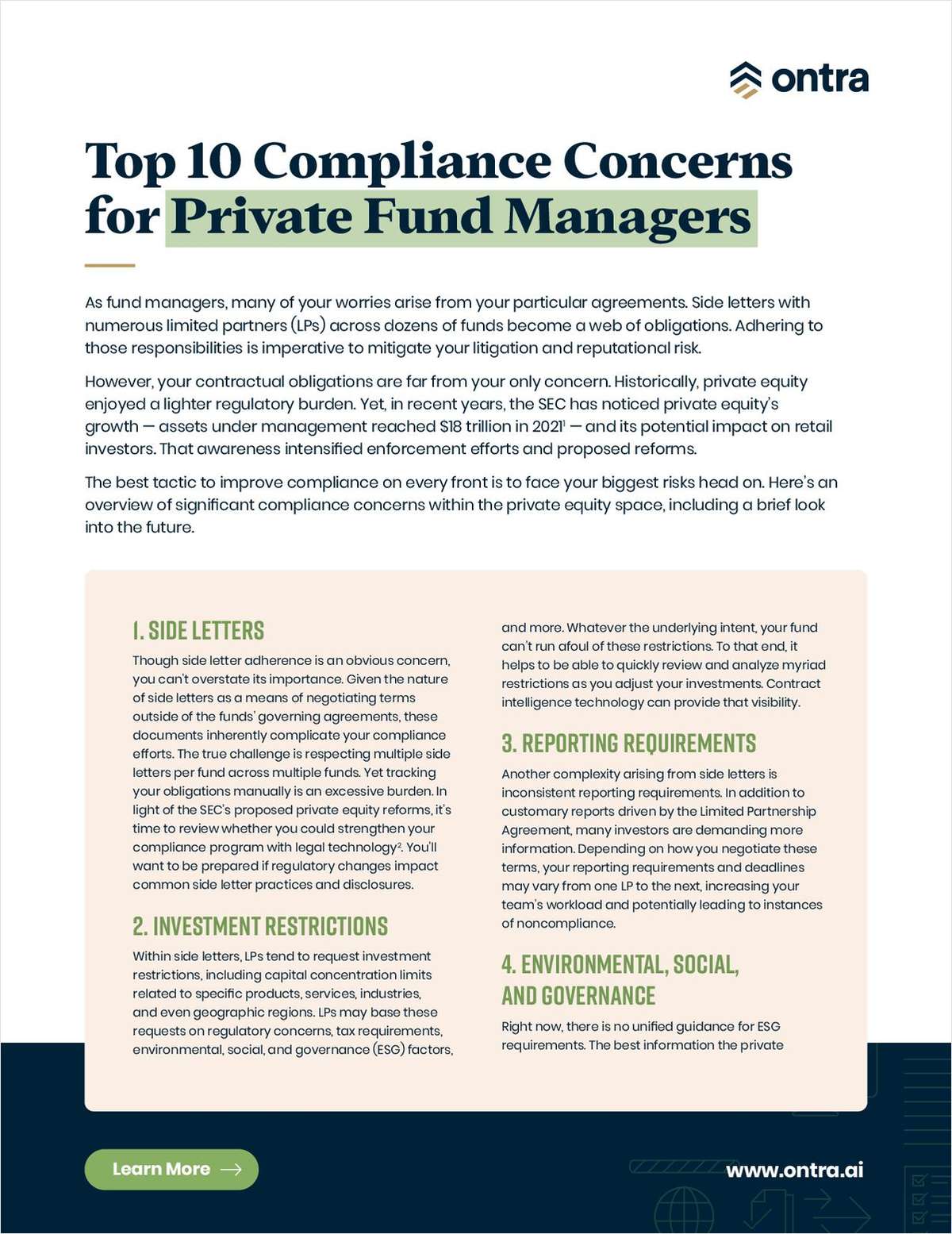Growing into it - the two kinds of managing partner
There are, generally speaking, two kinds of managing partner. The more effective version is marked by a few shared characteristics. Most strikingly, they will have a confidence-inspiring assuredness about them. This will be manifested in most dealings, but in particular in those with the leader's own partnership. Typically, this breed will have become highly adept at achieving that delicate calibration of positioning themselves far enough ahead of their partners to lead but close enough to bring them along.
September 01, 2010 at 02:57 AM
3 minute read
There are, generally speaking, two kinds of managing partner. The more effective version is marked by a few shared characteristics. Most strikingly, they will have a confidence-inspiring assuredness about them. This will be manifested in most dealings, but in particular in those with the leader's own partnership. Typically, this breed will have become highly adept at achieving that delicate calibration of positioning themselves far enough ahead of their partners to lead but close enough to bring them along.
Successful managing partners will usually also be notable for their communications skills, having become effective at establishing dialogue with a range of key parties both internally and externally. This, of course, starts with the partnership but will cover groups including non-legal staff, clients and the media.
But perhaps the most crucial element that marks a good managing partner is openness or, put another way, a willingness to be constructively critical regarding the business they run – at least when confronted with constructive criticism. It is this frank, down-to-earth quality that gives leaders' statements additional credibility. And credibility is a large part of the currency of persuasion. Look at the most financially successful law firms and it is very rare that they are not run by someone with most of these characteristics.
NOT FOR REPRINT
© 2024 ALM Global, LLC, All Rights Reserved. Request academic re-use from www.copyright.com. All other uses, submit a request to [email protected]. For more information visit Asset & Logo Licensing.
Trending Stories
- 1'I'm Staying Everything': Texas Bankruptcy Judge Halts Talc Trials Against J&J
- 2What We Know About the Kentucky Judge Killed in His Chambers
- 3Judge Blasts Authors' Lawyers in Key AI Suit, Says Case Doomed Without Upgraded Team
- 4Ex-Prosecutor and Judge Fatally Shot During Attempted Arrest on Federal Corruption Charges
- 5Federal Judge Won't Stop Title IX Investigation Into Former GMU Law Professor
Who Got The Work
Burr & Forman partner Garry K. Grooms has entered an appearance for 4M Acquisitions and Wallace D. Tweden in a pending environmental lawsuit. The action, filed July 22 in Tennessee Middle District Court by the McKellar Law Group and Mark E. Martin LLC on behalf of Tennessee Riverkeeper, contends that the defendant's violated the Clean Water Act and Tennessee Water Quality Control Act by allowing for the discharge of pollutants into waters of the U.S. without obtaining a National Pollutant Discharge permit. The case, assigned to U.S. District Judge Aleta A. Trauger, is 3:24-cv-00886, Tennessee Riverkeeper, Inc. v. Tweden et al.
Who Got The Work
Ramsey M. Al-Salam, Gene W. Lee and Stevan R. Stark of Perkins Coie have entered appearances for R-Pac International in a pending patent infringement lawsuit. The case, filed Aug. 12 in New York Southern District Court by PinilisHalpern LLP and Friedman Suder & Cooke on behalf of Adasa Inc, asserts a single patent related to wireless sensors used for tagging products. The case, assigned to U.S. District Judge Alvin K. Hellerstein, is 1:24-cv-06102, Adasa Inc. v. R-Pac International LLC.
Who Got The Work
Walmart has tapped lawyer Nicole M. Wright of Zausmer PC to defend a pending product liability lawsuit. The action was filed Aug. 12 in Michigan Eastern District Court by Wolfe Trial Lawyers on behalf of a plaintiff claiming burns from a defective propane tank. The case, assigned to U.S. District Judge Matthew F. Leitman, is 2:24-cv-12100, Hill v. Ferrellgas, Inc. et al.
Who Got The Work
Kevin Simpson and James Randall of Winston & Strawn have stepped in to represent Comcast in a pending consumer class action. The case, filed Aug. 11 in Georgia Northern District Court by Kaufman PA, contends that the defendant placed pre-recorded debt collection phone calls to the plaintiff in violation of the Telephone Consumer Protection Act. The case, assigned to U.S. District Judge J.P. Boulee, is 1:24-cv-03553, Pond v. Comcast Cable Communications LLC.
Who Got The Work
Potter Anderson & Corroon partners Christopher N. Kelly and Kevin R. Shannon have stepped in to represent cloud computing company Fastly and its top executives in a pending shareholder derivative lawsuit. The complaint, filed Aug. 23 in Delaware District Court by deLeeuw Law and Bragar Eagel & Squire on behalf of Mark Sweitzer, accuses the defendant of failing to disclose that revenue growth in 2023 was primarily driven by a 'consolidation trend' in which companies simplified operations by reducing the number of content delivery network vendors under management, thereby reducing competition and increasing the defendant's market share. The case, assigned to U.S. District Judge Gregory B. Williams, is 1:24-cv-00969, Sweitzer v. Nightingale et al.
Featured Firms
Law Offices of Gary Martin Hays & Associates, P.C.
(470) 294-1674
Law Offices of Mark E. Salomone
(857) 444-6468
Smith & Hassler
(713) 739-1250









